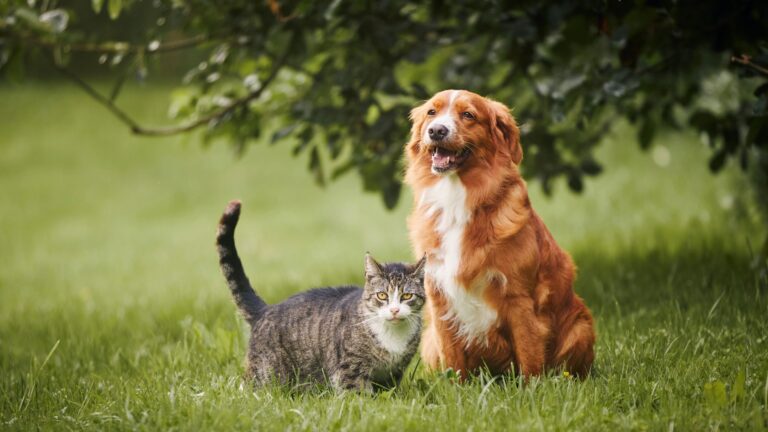What is High Calorie Dog Food?
As a pet owner, ensuring that your dog gets the right nutrition is essential for their health and well-being. Sometimes, dogs need extra energy and calories to maintain their ideal weight or support their active lifestyle. High calorie dog food is specifically formulated to provide more calories than standard dog food. These foods typically contain a higher fat and protein content, along with more concentrated nutrients to deliver additional energy to your dog. High-calorie foods are often used for dogs that require more calories due to high activity levels, metabolic conditions, or if they are underweight and need to gain healthy weight.
Why Would Your Dog Need High Calorie Dog Food?
There are several reasons why your dog may need high-calorie food. Understanding these reasons can help you determine whether this type of food is right for your pet:
1. Underweight or Poor Appetite
Some dogs may be underweight due to a poor appetite, health issues, or a fast metabolism. For these dogs, high calorie food can provide the extra energy needed to promote healthy weight gain. Dogs that are underweight are more susceptible to health problems and may lack the strength needed to stay active and thrive. Calorie dense dog food helps fill this nutritional gap, ensuring your dog has enough calories to support their body’s functions.
2. Highly Active Dogs
If your dog is very active or works as a working dog, they will require more calories to fuel their energy needs. High energy food provides the extra energy needed to keep them going throughout the day. Dogs that participate in agility, sports, or other physically demanding activities often require additional nutrition to maintain their stamina and performance.
3. Recovery from Surgery or Illness
After surgery or an illness, dogs may lose weight or have trouble eating enough to maintain their body condition. In such cases, high calorie food for dogs can help in their recovery process. The added calories and nutrients can help rebuild lost muscle mass and support the immune system, aiding in a quicker and healthier recovery.
4. Puppies and Pregnant Dogs
Young puppies and pregnant or nursing dogs require more calories to support their growth and development. Nutrient rich food ensures that they get the extra energy they need for healthy weight gain, muscle development, and proper fetal development during pregnancy.
How High Calorie Dog Food Boosts Energy & Supports Weight Gain
High-calorie dog food is designed to provide dogs with the energy they need to stay active and healthy, while also supporting weight gain for those that need it. Here’s how it works:
1. Higher Fat Content
Fat is a concentrated source of energy, and high-calorie dog food often contains higher amounts of healthy fats. Fats provide more calories per gram compared to proteins or carbohydrates. This makes it easier for your dog to gain weight and maintain energy levels without having to eat large quantities of food.
2. Rich in Protein
Protein is essential for muscle development, repair, and overall health. High-calorie dog food typically contains higher levels of protein, which helps in muscle building and recovery. This is particularly important for active dogs or those recovering from illness, as they need protein to support muscle growth and repair.
3. Concentrated Nutrients
High calorie dog food is often more nutrient-dense, meaning it contains a higher concentration of vitamins, minerals, and other nutrients that are important for your dog’s overall health. These nutrients are necessary for energy production, bone health, and immune system function, helping your dog stay strong and healthy.
How to Choose the Right Calorie Dense Food
Choosing the right high calorie food for dogs can be overwhelming with so many options available. Here are some tips to help you pick the best high-calorie food for your dog:
1. Check the Ingredients
Look for dog food that contains high-quality protein sources such as chicken, beef, or fish. Also, check for healthy fats like chicken fat, fish oil, or flaxseed, as these provide concentrated calories. Avoid foods that contain low-quality fillers like corn and soy, as these don’t provide much nutritional value.
2. Look for the Calorie Content
High calorie dog food should have a higher calorie content per serving compared to regular dog food. Check the label to see how many calories are in a cup or serving. It’s important to choose a food that meets your dog’s specific caloric needs based on their weight, activity level, and health status.
3. Consult Your Veterinarian
If you’re unsure whether your dog needs high calorie dog food, it’s always a good idea to consult your veterinarian. They can help assess your dog’s weight, activity levels, and overall health to determine if a high-calorie diet is appropriate. Your vet can also recommend specific brands or formulations that would work best for your dog’s needs.
When to Transition to High Calorie Food for Dog
If you’ve decided that your dog would benefit from a high-calorie diet, it’s important to transition them slowly. Abrupt changes in diet can upset their stomach and cause digestive issues. Start by mixing the high calorie food with your dog’s current food, gradually increasing the amount of high-calorie food over the course of several days. This helps your dog adjust to the new food while avoiding digestive upset.
Conclusion
High calorie food is an excellent option for dogs that need additional energy, weight gain, or recovery support. Whether your dog is underweight, highly active, recovering from an illness, or in need of extra nutrients during pregnancy, high-calorie food provides the essential calories, protein, and fats to keep them healthy, strong, and full of energy. Always consult with your veterinarian before making any dietary changes to ensure you’re choosing the right food for your dog’s specific needs. With the right high energy food, you can help your dog live a long, active, and healthy life.







Reading this felt like watching the sunrise over a calm sea — filled with quiet awe and deep appreciation.